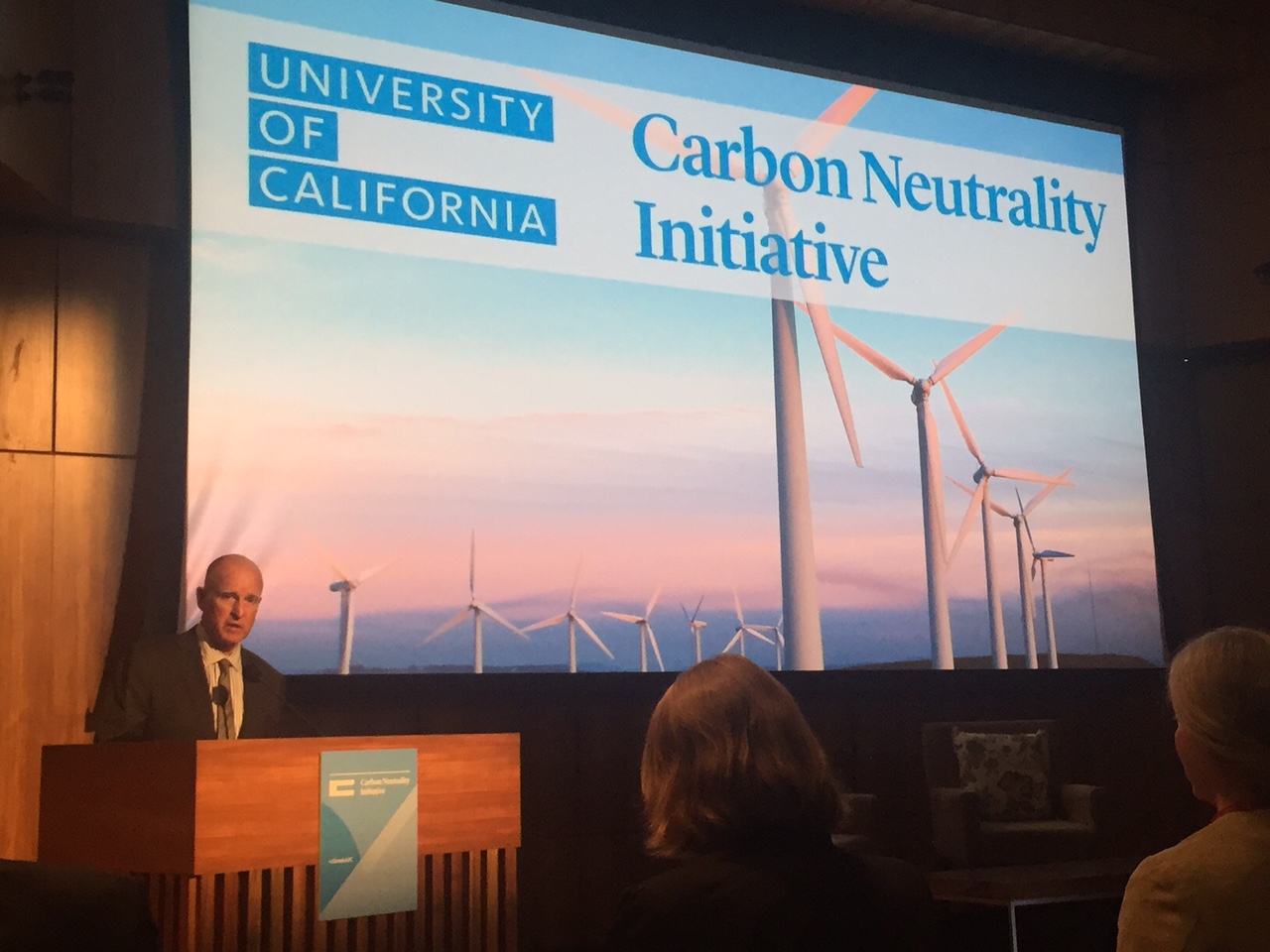Dr. Per Espen Stoknes, Prominent Author, Economist and Organizational Psychologist on How to Talk About Climate Change
On Thursday, October 29, 2015 the Schwarzenegger Institute, in partnership with the USC Environmental Student Assembly (ESA), hosted Dr. Per Espen Stoknes for a discussion about his newest book “What We Think About, When We Try Not to Think About Global Warming" (Chelsea Green, 2015).
Stoknes' research showed that in the past decade while scientific certainty about human caused climate change increased, human concern and interest decreased. Stoknes then went on to explain how climate advocates have been talking about climate change incorrectly. Stoknes’ talk focused on how understanding human responses to climate change is just as important as understanding climate change itself. Believing that conventional climate communications have triggered more distancing, not increased concern and priority, Stoknes looked at the five main psychological barriers to climate action and provided solutions and strategies to help better communicate this serious, global and local, challenge.
Governor Schwarzenegger, having first-hand experience using communications to motivate voters and impact policy makers on this issue, agrees with Stoknes' assessment and advice. The Governor and Institute believe Stoknes' research provides important guidance on the best ways to communicate and impact public debate and public policy.The ESA was interested in how this research can benefit students by helping them learn what messages most resonate with young people.
Stoknes' top suggestions were:
Make the issue feel local, immediate, human, and personal
Reduce cultural and political polarization on the issue
Avoid triggering the emotional need for denial through fear, guilt and self-protection.- Use the power of social networks
Make the climate-friendly behaviors easy and convenient
If we are to change attitudes among those who do not believe climate change is a problem, or inspire action among those who believe it is a problem, we require a better understanding of communications and messaging strategy. Effective communications are essential to California's success in reaching its ambitious emission reduction targets, and in helping the global community, seeking agreement at COP 21 in December, to limit warming to below 2 degrees, or limit GHG emissions to 2 tons per capita, or 80-95% below 1990 levels by 2050.
Global Director Bonnie Reiss Participates in UC Conference on Carbon Neutrality
On October 26-27 the University of California convened top researchers from across their 10 campuses and 3 national labs, as well as policy and business leaders from outside the UC system, at the Scripps Institute of Oceanography, to discuss their recently released report, “Bending the Curve”.
With climate change scientifically incontrovertible the world is looking for scalable solutions to "bend the curve" – flattening the upward trajectory of human-caused GHG emissions and consequent global climate change. The report and conference offered 10 solutions for achieving carbon neutrality and climate stability.
In 2013 UC President Janet Napolitano pledged to make UC carbon neutral by 2025, becoming the first major university to set such a bold goal. Governor Jerry Brown and State Senator Fran Pavley acknowledged the impactful climate leadership of Governor Schwarzenegger and how California is a living laboratory to the world. Through smart public policies California is proving that GHG emissions can be reduced dramatically while simultaneously stimulating economic and job growth.
The role that universities, research, and students play in addressing climate change is one the Schwarzenegger Institute highly values, which is why we support collaborations with leading institutions like the University of California. Accordingly, the Institute and Governor Schwarzenegger are co-organizing an event at Sciences Po University during the COP 21 climate summit in Paris. Sciences Po is renown for its research on climate change policy and its longstanding commitment to educating future government leaders.
Institute Joins ESA to Brief the USC Student Community on the Upcoming COP 21 Climate Summit in Paris
On October 13, 2015 the Institute invited Gary Gero, President of Climate Action Reserve, to USC to provide students with a briefing on the history and goals of the UN COP 21 climate summit taking place in Paris this December. Gero's presentation included his assessment of the likelihood of an international agreement being reached by the more than 190 nations taking part.
Gero and the Climate Action Reserve are supporting the delegation of California leaders attending the Summit this December.
The USC Schwarzenegger Institute is proud to sponsor the California welcome reception at the COP, which is being organized by the Climate Action Reserve for the delegation of California leaders traveling to Paris for the important international summit.

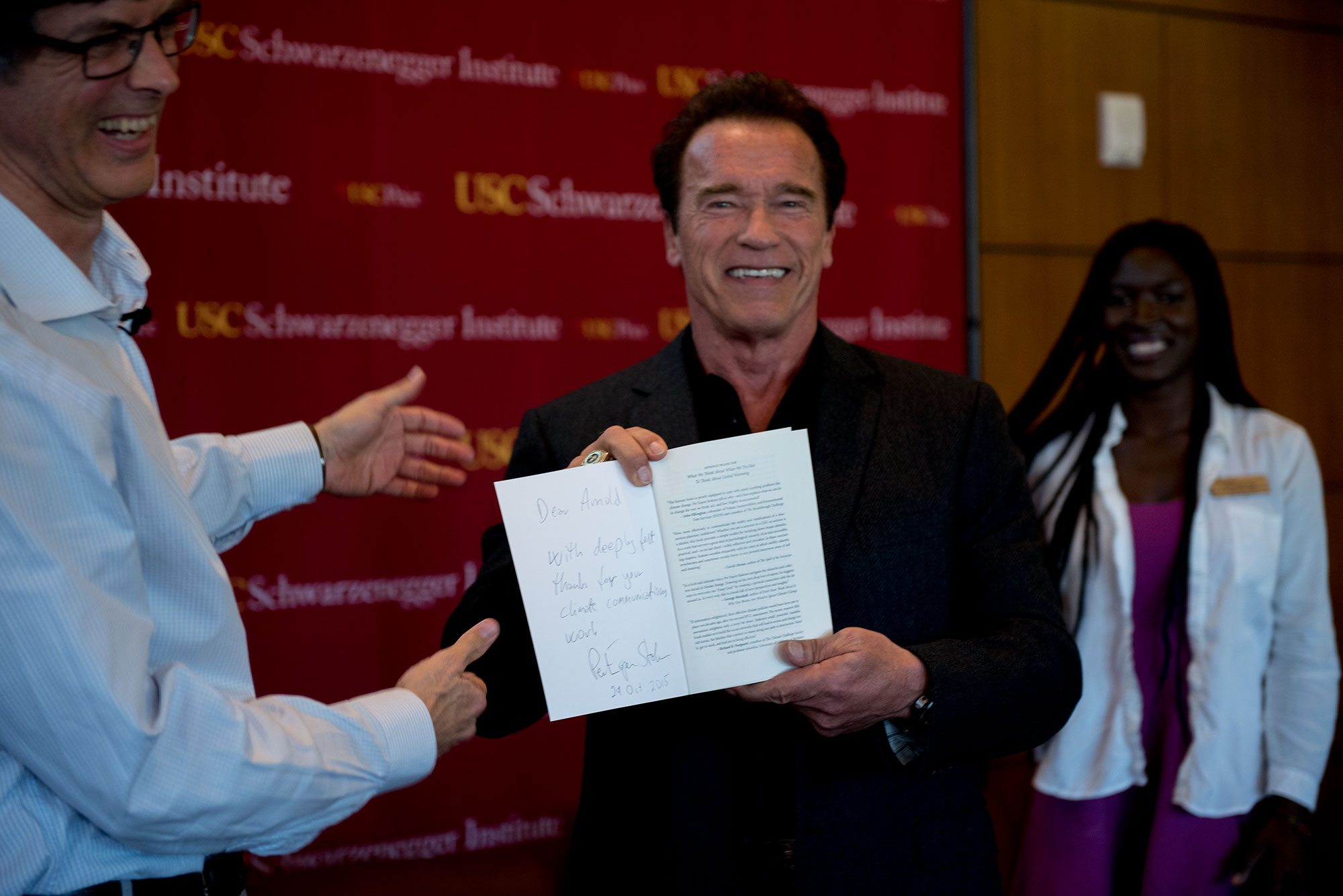
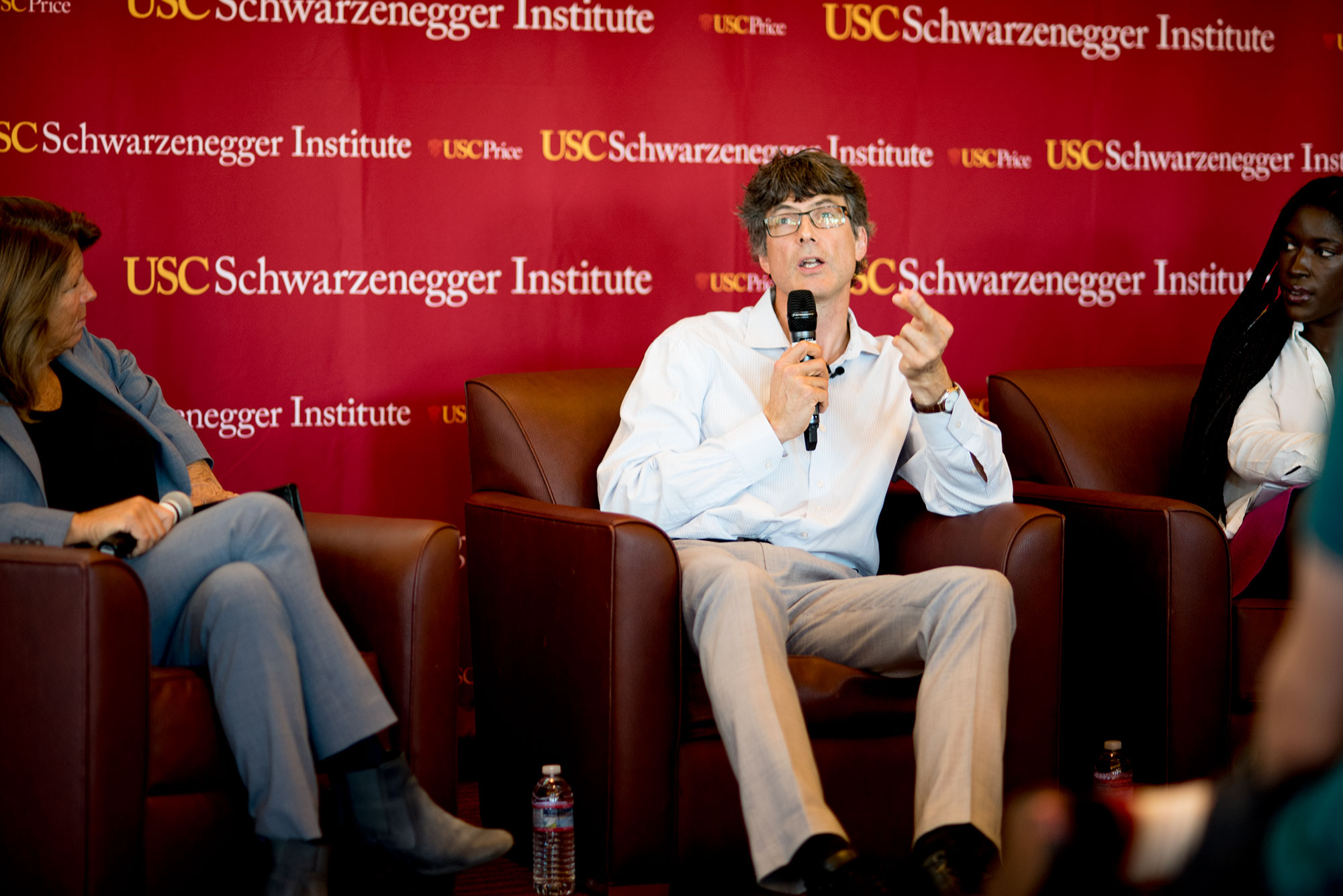
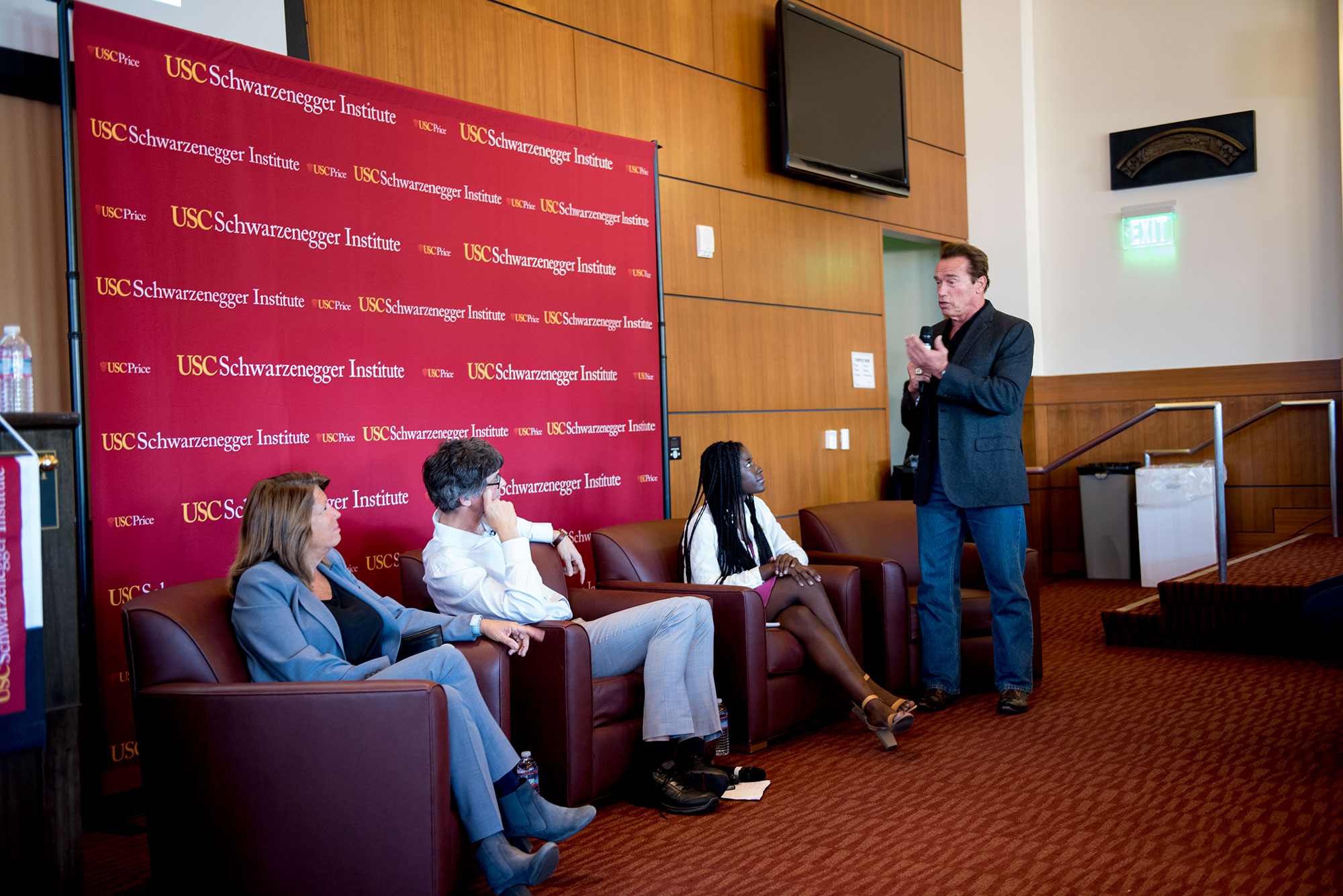
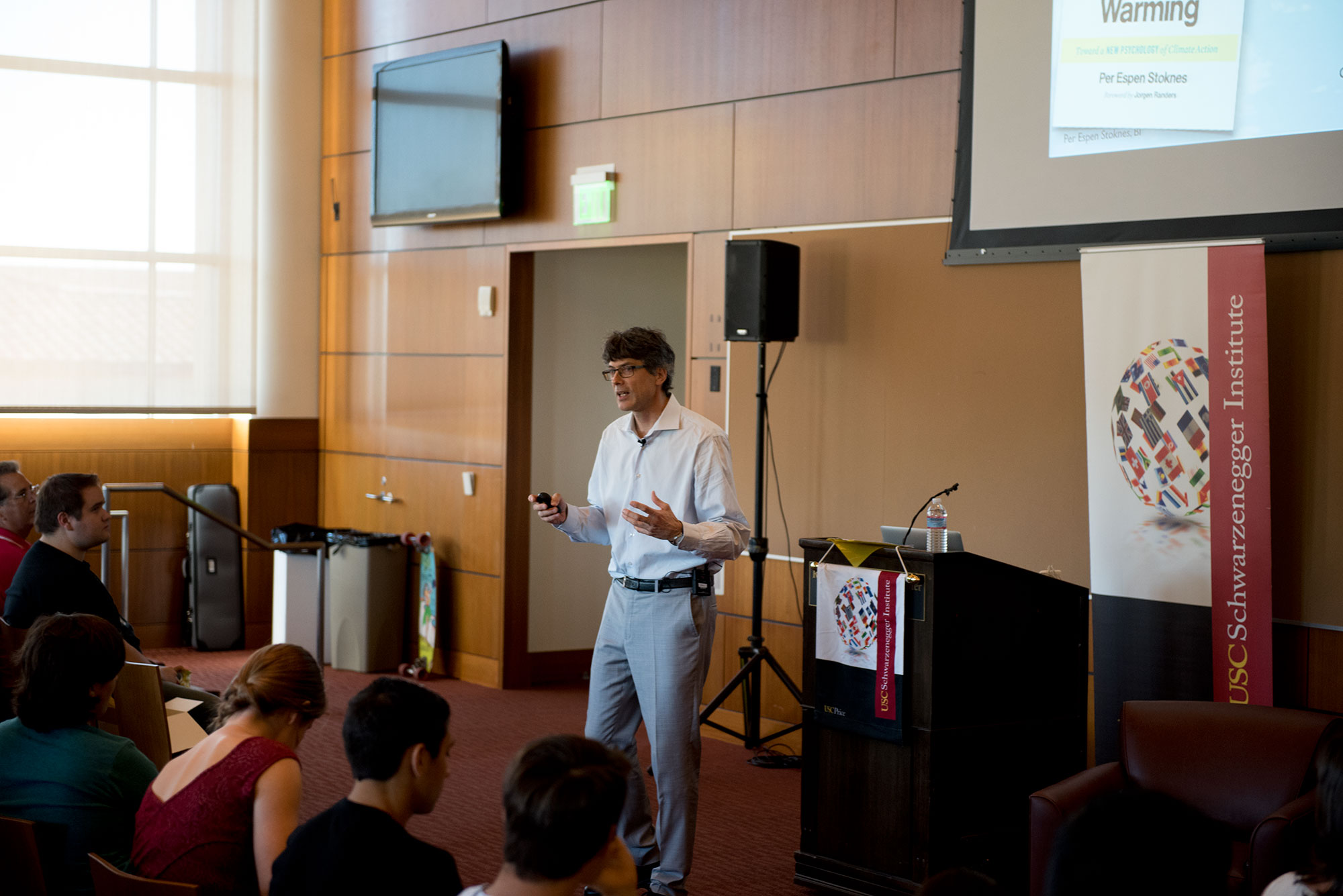
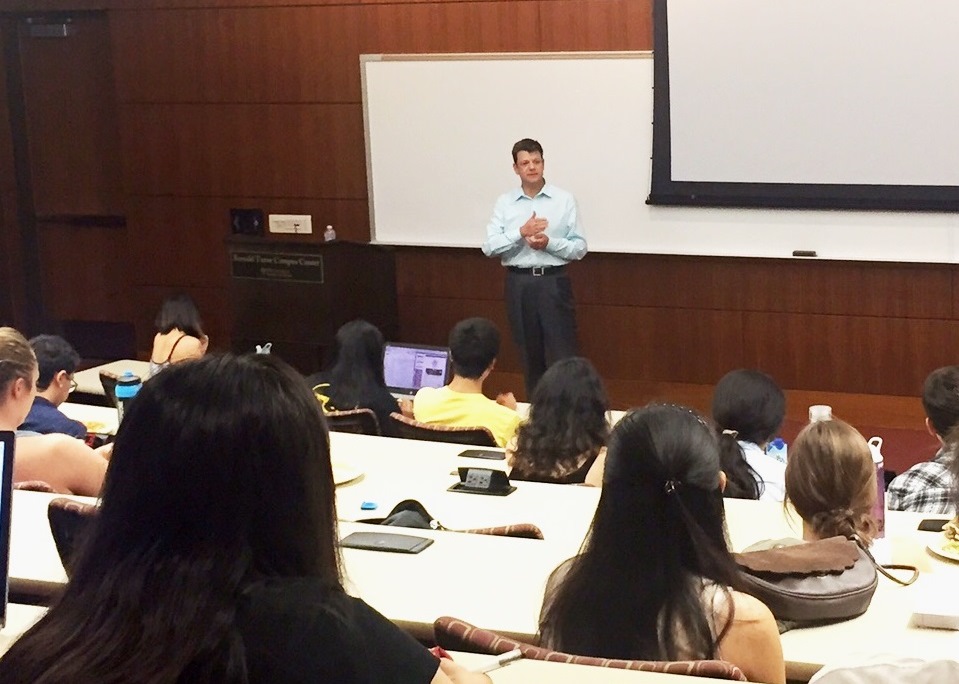
1.jpg)
